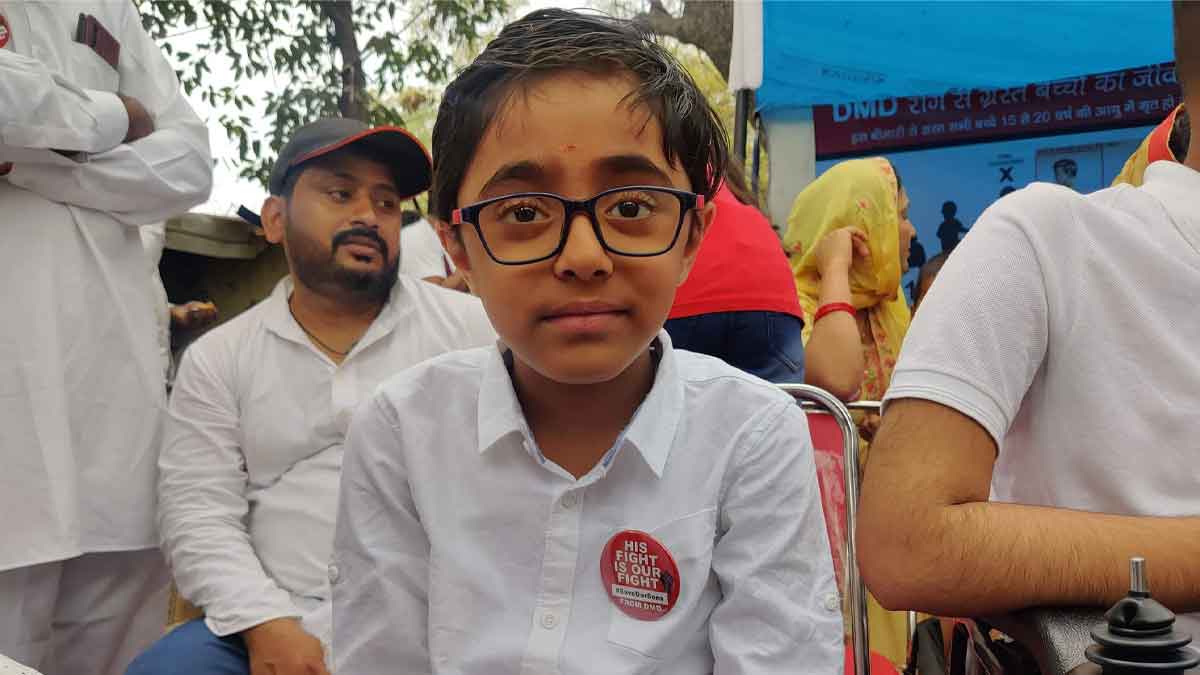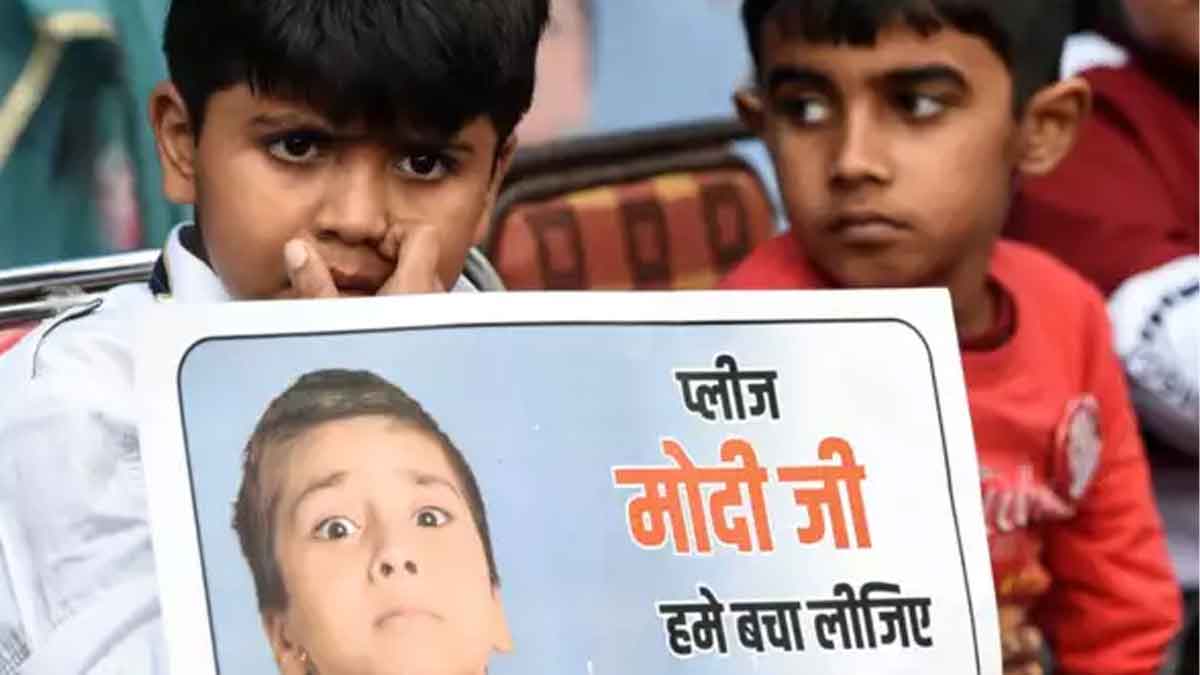
Recently, more than 500 parents from across India protested at Delhi’s Jantar Mantar to urge the government to assist children with Duchenne Muscular Dystrophy (DMD). Reports show that eight out of 10 children suffering from DMD in India die by the age of 20.
Table of Content:-
According to an overview from the National Library of Medicine, Duchenne Muscular Dystrophy is a rare but devastating genetic disorder that primarily affects boys. This progressive condition involves the gradual degeneration of muscle tissue, significantly impacting a person's quality of life.
Duchenne Muscular Dystrophy Causes

Duchenne Muscular Dystrophy is caused by a genetic mutation. As a result, the body is unable to produce dystrophin, a protein essential for maintaining muscle structure and function. This genetic mutation is usually inherited, and because the gene is on the X chromosome, the disorder primarily affects males.
The symptoms of Duchenne Muscular Dystrophy typically manifest in early childhood. These are:
- Delayed motor skills development, and difficulty running or climbing stairs.
- As the condition progresses, muscle weakness becomes more pronounced,
- Inability to perform everyday activities.
- Respiratory and cardiovascular complications.
DMD presents significant physical challenges, gradually limiting a person's mobility and independence. Wheelchair use often becomes necessary as the condition progresses, and adaptive strategies are required to navigate daily life.
Also Read: Muscular Dystrophy: Expert Explains The Disorder And Its Treatment Options
Duchenne Muscular Dystrophy Treatment

Living with DMD can be emotionally challenging for both individuals and their families. The progressive nature of the disorder and its impact on daily life pose ongoing emotional stress.
While there is no cure for DMD, various supportive therapies aim to enhance the quality of life for individuals with DMD. Physical therapy, respiratory support, and medications may be prescribed to manage symptoms and slow down the progression of the disease.
Ongoing research in the field of genetic therapies and gene-editing technologies holds promise for the future of DMD treatment. Clinical trials exploring potential breakthroughs give hope to affected families, offering the possibility of slowing or halting the progression of the disorder.
Also Read: Genetic Disorder That Affects Muscles Responsible For Movement: Expert Explains About It
Duchenne Muscular Dystrophy is a complex and challenging condition that affects individuals and families on multiple levels. While current treatments focus on managing symptoms, the evolving landscape of genetic research brings hope for potential breakthroughs in the quest for a cure. Increased awareness, support, and research efforts are essential in addressing the unique needs of those living with DMD and working towards a future where effective treatments are widely available.
Also watch this video
How we keep this article up to date:
We work with experts and keep a close eye on the latest in health and wellness. Whenever there is a new research or helpful information, we update our articles with accurate and useful advice.
Current Version